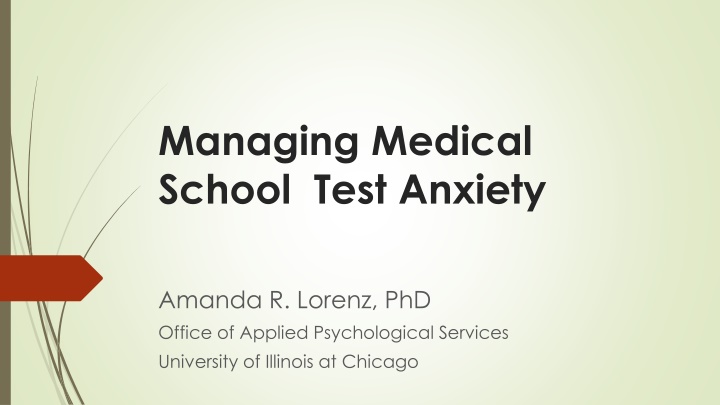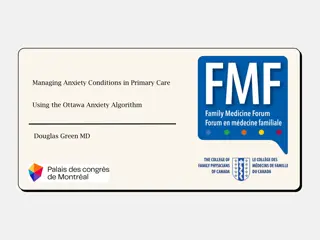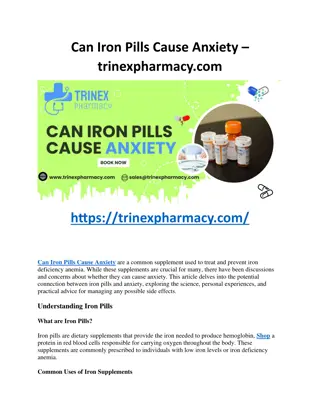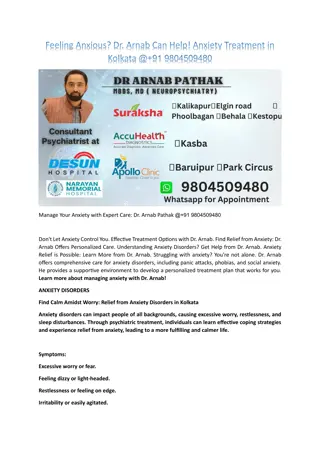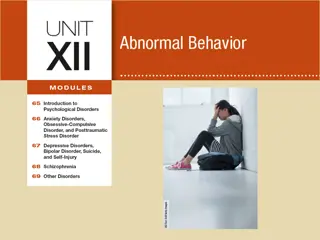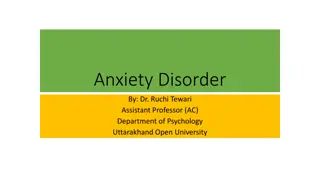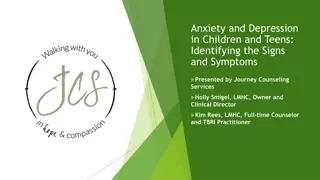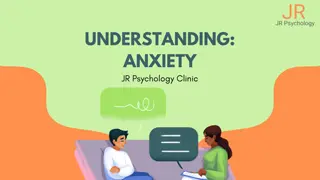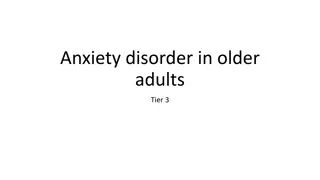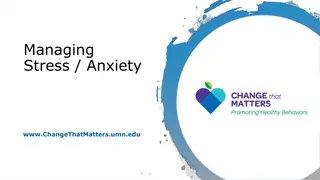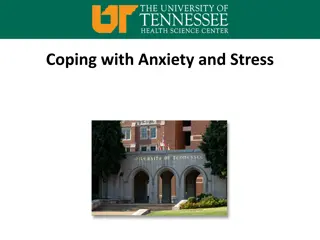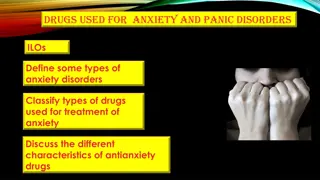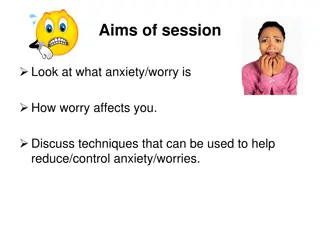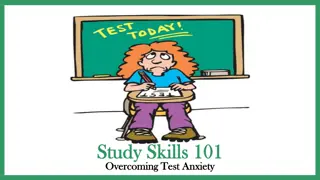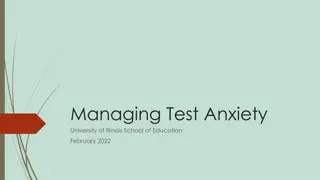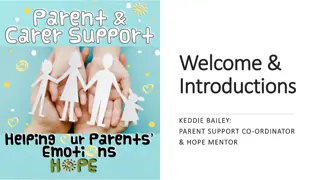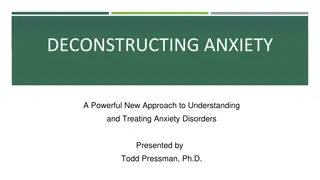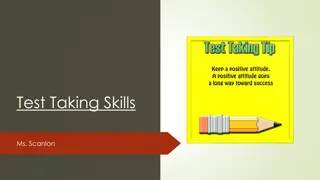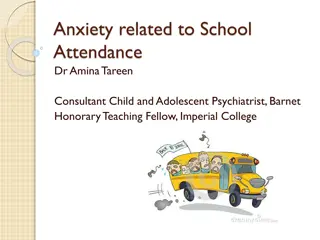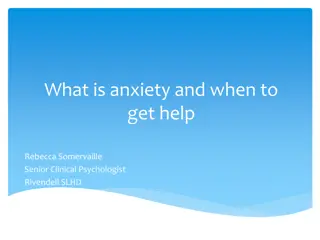Managing Test Anxiety in Medical School
Identify signs of anxiety, learn techniques to minimize test anxiety, and develop a plan for maximizing performance in medical school. Explore cognitive-behavioral therapy, challenge cognitive distortions, harness the power of writing, and cultivate positive experiences. Embrace successful study skills for optimal learning outcomes.
Uploaded on Mar 08, 2025 | 2 Views
Download Presentation

Please find below an Image/Link to download the presentation.
The content on the website is provided AS IS for your information and personal use only. It may not be sold, licensed, or shared on other websites without obtaining consent from the author.If you encounter any issues during the download, it is possible that the publisher has removed the file from their server.
You are allowed to download the files provided on this website for personal or commercial use, subject to the condition that they are used lawfully. All files are the property of their respective owners.
The content on the website is provided AS IS for your information and personal use only. It may not be sold, licensed, or shared on other websites without obtaining consent from the author.
E N D
Presentation Transcript
Managing Medical School Test Anxiety Amanda R. Lorenz, PhD Office of Applied Psychological Services University of Illinois at Chicago
Goals Identify the signs and symptoms of anxiety Learn tips and techniques to minimize test anxiety Develop a plan that maximizes test performance and success in medical school (and beyond )
Congratulations on getting into medical school!
Cognitive Behavioral Therapy (Aaron Beck, MD)
Challenge Your Cognitive Distortions Replace distortions with positive self-talk I have accomplished a lot already I am smart and I can do this I belong here I am prepared for this test It is only one test Recognize the distortions Challenge them Consider the alternatives Examine the evidence Is this thought helping me Reference group (what would others think or do? What would I tell a friend?)
The Power of Writing Ramirez & Beilock (2014) & Nelson & Knight (2010) Writing for a few minutes prior tests increased self-efficacy and test performance!
Be a Role Model for your Patients
Increase Positive Experiences Pleasant Activities Inside Outside Alone With Others
Successful Study Skills Spaced (not massed) Learning Elaboration and variation and elaboration(!) Organize the Material Ask Questions Use Mnemonics Sleep!
Tips for the Day of the Test Sleep & Eat well Use Coping Skills Don't worry about other students finishing the test before you do Concentrate on your own test Stay focused on the questions
Tips for Multiple Choice Questions Read the question and circle or underline any key words Try to answer a question before looking at the choices If your answer is there, that s a good sign! Eliminate wrong answers Mark questions that you can t answer & continue working. Then, return to skipped questions, even if it is simply to mark a guess. Pace Yourself Do not change your answers
WARNING! Depression and Burn-out! Helplessness and Hopelessness Sadness and Irritability Anhedonia Changes in Sleep Changes in Appetite
Resources Faculty Advisors Office of Student Affairs Advisor (312) 996-2450 UIC Counseling Center (312) 996-3490 Office of Applied Psychological Services at UIC (312) 996-2540 Amanda Lorenz, PhD, at 312-413-2636 or arlorenz@uic.edu Personal Physician
